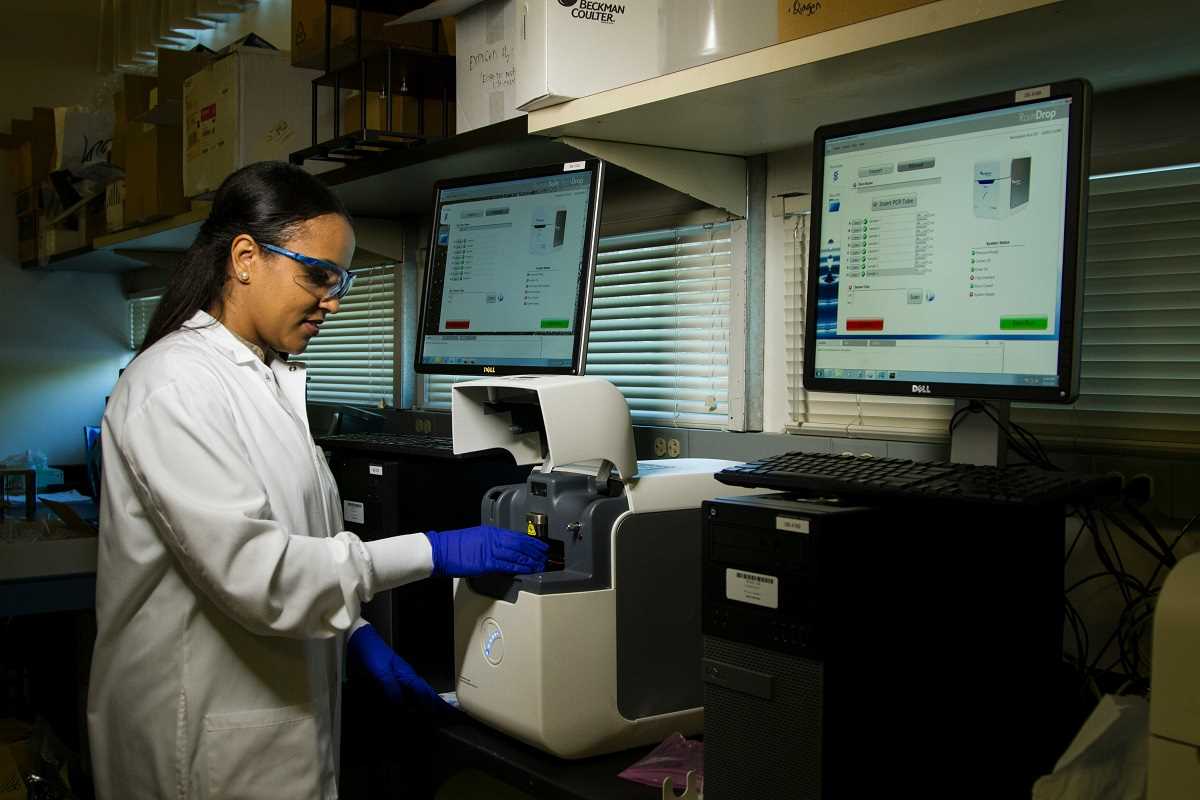Artificial intelligence (AI) is changing the way healthcare works, and it’s creating exciting opportunities to improve how we care for patients. Using advanced algorithms, AI analyzes data, finds patterns, and makes predictions that help doctors and medical staff work smarter. When it comes to healthcare, AI is having a big impact in three main areas—diagnostics, treatment plans, and operational efficiency. Let’s take a closer look at how AI is shaping the future of medicine.
Smarter Diagnostics with AI
Diagnosing diseases has always been a challenging task. Doctors rely on their training and experience to recognize symptoms, but mistakes can happen. That’s where AI tools step in, helping doctors catch issues faster and more accurately.
One of the best examples of this is in medical imaging. Machines trained with AI algorithms can look at X-rays, MRIs, or CT scans and spot health problems—sometimes better than human doctors. For instance, Google Health has developed an AI system that identifies signs of breast cancer in mammograms more accurately than radiologists. This means doctors can catch the cancer earlier, giving patients a better chance to recover.
AI isn’t limited to cancer detection either. It’s also helping with diseases like diabetes and heart problems. For example, IBM Watson Health uses AI to look at heart-related medical tests and predict the chances of a heart attack. Catching these risks early means patients can get treatment sooner, potentially saving lives.
What’s more, AI is expanding to areas like dermatology and genetics. Skin condition detection apps use AI to help people identify issues, like checking if a mole might be melanoma. Similarly, AI in genetics can analyze a patient’s DNA to predict health risks. These tools are making healthcare both more precise and more accessible for patients around the world.
Personalized Treatment Plans
One-size-fits-all treatments don’t always work because each patient is different. AI is fixing this problem by enabling personalized medicine. By analyzing a patient’s genetic information, health records, and other data, AI helps doctors recommend treatments that are tailored to an individual's unique needs.
Cancer treatment is one area where AI is already making a difference. Systems like IBM Watson for Oncology go through mountains of medical research, guidelines, and patient information to suggest the most effective treatment options. Instead of spending hours reviewing studies or making guesses, doctors can get evidence-based recommendations quickly.
AI also plays a big role in precision medicine. Drug companies are using AI to figure out how patients with specific genetic makeups might respond to different medications. This improves the odds of finding the right treatment faster, avoiding the trial-and-error approach many patients experience today.
AI isn’t just helping doctors either—it’s improving how patients stick to their treatments. Virtual assistants like Woebot and ADA Health guide patients by answering their health questions, reminding them to take medications, and providing support. These tools keep patients engaged and on track with their care, leading to better long-term outcomes.
Greater Efficiency in Medical Facilities
Running a hospital requires a lot of coordination, and inefficiencies can lead to long wait times, overworked staff, and other problems. AI is stepping in to streamline operations by making the entire system run more smoothly.
For example, some hospitals use AI to schedule appointments. Tools like Qventus analyze patient data to predict delays and keep things running on time. This makes the hospital experience better for patients and more manageable for staff.
AI is also helping hospitals manage medical supplies. Predicting how much equipment or medication they’ll need at different times means facilities can avoid running out—or having too much stock that goes to waste. This is especially helpful during busy seasons like flu outbreaks or emergencies like pandemics.
Administrative work, such as billing and updating patient records, can take up hours of staff time. AI-powered systems, like Olive, handle these repetitive tasks, freeing up doctors and nurses to focus on their patients. By reducing errors and saving time, these tools make hospitals more efficient overall.
Even worker schedules are improving. AI tools analyze data to figure out staffing needs on busy or slow days. This keeps staff from being overwhelmed while making sure enough people are on hand to provide quality care.
Benefits of AI in Healthcare
The benefits AI brings to healthcare are massive. Patients receive more accurate diagnoses, faster treatments, and care that’s personalized to their needs. Doctors get to spend more time with patients and less time on paperwork, improving the overall quality of service. Hospitals save money by reducing waste and running more efficiently.
AI is also speeding up the pace of medical discoveries. During the COVID-19 pandemic, AI helped researchers analyze massive datasets quickly, playing a key role in vaccine development. It’s clear that AI isn’t just improving healthcare—it’s enabling breakthroughs.
The Challenges AI Faces
Even with its potential, using AI in healthcare comes with challenges. Privacy is a big concern since AI works with sensitive patient data. Hospitals and tech companies must follow strict rules, like HIPAA in the U.S., to protect patient information.
Another issue is how some AI systems work like “black boxes.” They provide answers or recommendations, but it’s not always clear how the system arrived at those conclusions. This lack of transparency can make it hard for doctors to trust the technology completely.
Bias is another concern. If an AI system’s training data comes from one specific group of people, it might not work well for others. For example, an AI trained on data from mainly white patients might miss key details in Black or Asian patients.
Finally, switching to AI systems isn’t cheap. Hospitals need funds and staff training to fully integrate these tools, which can be difficult for smaller or underfunded facilities.
What’s Next for AI?
The potential for AI in healthcare is huge. AI-powered devices that monitor your health at home—and alert doctors when something’s wrong—are already being developed. Virtual consultations with AI assistants could make healthcare more accessible, especially in rural areas without many specialists.
Researchers are working on ways for AI to analyze notes from doctors and surveys from patients, unlocking even more data to improve care. Over time, AI may also reduce global healthcare inequality by offering solutions that don’t require as many resources, like virtual diagnostic tools for remote areas.
Artificial intelligence revolutionizes healthcare, helping doctors spot diseases early, create custom treatments, and keep hospitals running efficiently. While challenges like privacy and cost remain, AI’s benefits far outweigh the hurdles. With continued progress and collaboration, AI has the potential to raise the standard of medical care for everyone—and that’s something worth getting excited about.
 (Image via
(Image via





